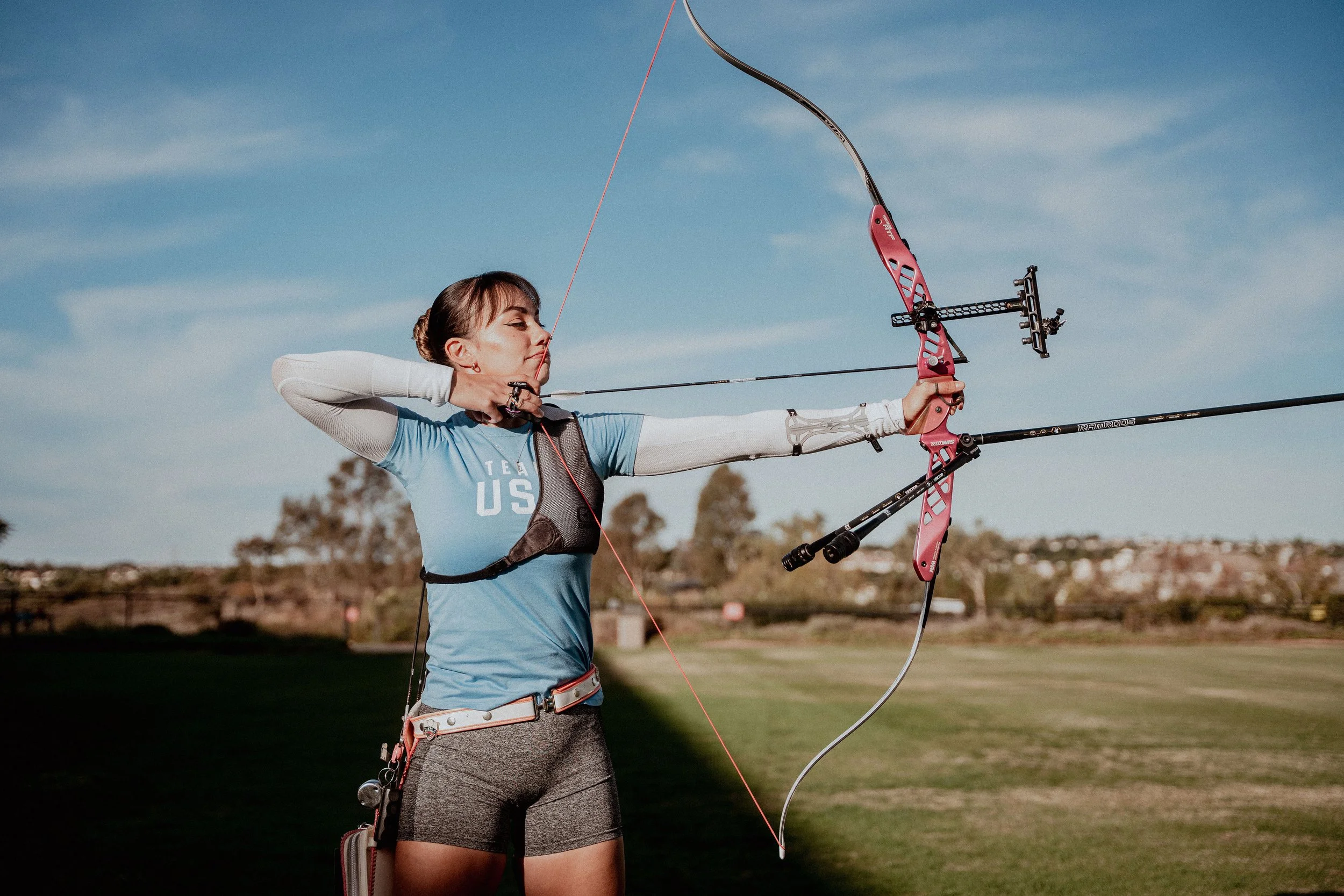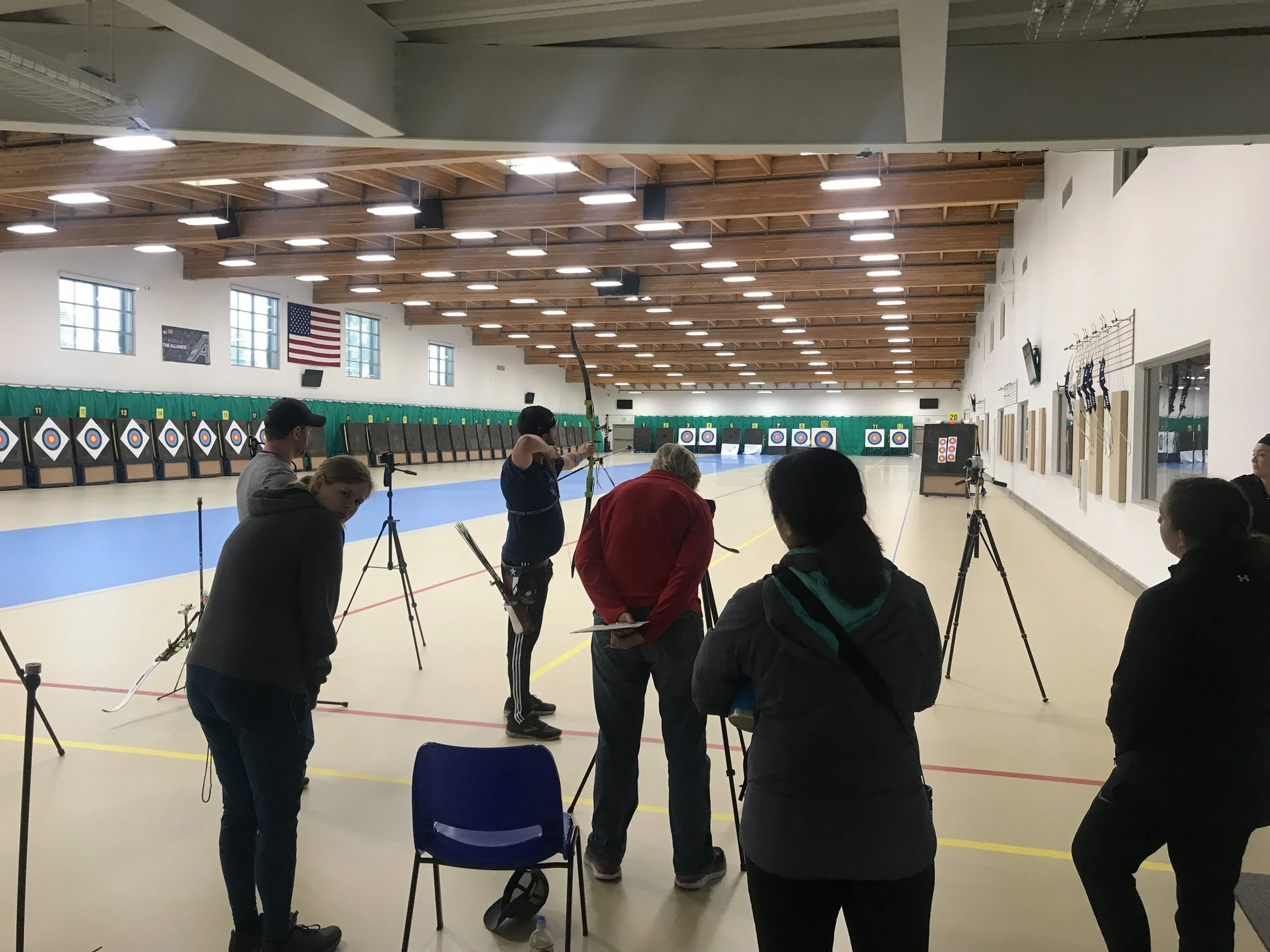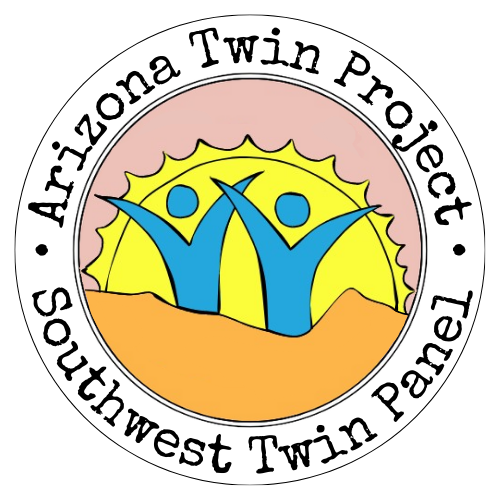
Research.
My research examines how leadership, communication, and cognitive regulation shape athlete performance and learning in precision-based sports. I am especially interested in how biofeedback, focus training, and coaching methods can enhance confidence, consistency, and motivation under pressure. My goal is to connect sport psychology and coaching science to improve how athletes and coaches train, lead, and learn.
Senior Thesis Research Project
Effects of Neurofeedback and Vagus Nerve Stimulation on Archery Performance
Barrett Honors College, Arizona State University
Conducted at the U.S. Olympic Training Center, Chula Vista, CA
This study examined how EEG neurofeedback training and vagus nerve stimulation impact physiological and psychological performance factors in elite recurve archers.
Ten Olympic-level athletes participated, with measurements including EEG activity, heart rate, and performance scoring.
Results indicated:
A significant reduction in resting heart rate following vagus nerve stimulation
A measurable increase in brain efficiency under pressure after neurofeedback training
Improved subjective quality ratings and focus consistency among participants
While no significant changes were found in scoring outcomes due to limited duration, findings suggest that consistent neurofeedback and vagus nerve stimulation could produce measurable long-term improvements in precision and focus under competition conditions.
This project was funded by Barrett Honors College, approved through IRB review, and presented at the Arizona State University Barrett Research Symposium, the Arizona Undergraduate Research Conference, and the Association of Applied Sport Psychology Annual Conference.
Select Presentations & Publications
Rodriguez, E. (2020). Effects of Neurofeedback and Vagus Nerve Stimulation on Archery Performance. Association of Applied Sport Psychology Annual Conference.
Rodriguez, E. (2020). Barrett Honors Symposium Poster Presentation. Arizona State University.
Rodriguez, E. (2020). Lack of Sleep Associated with Athletes’ Performance: A Literature Review. ASU Supervised Honors Research Project.
Undergraduate Research Experience
Arizona Twin Project, Arizona State University
Research Assistant | Laboratory of Dr. Leah Doane
As a research assistant in the Arizona Twin Project, I contributed to large-scale longitudinal research examining how genetics and environment interact to influence emotional and physiological regulation in youth.
Conducted data entry, coding, and statistical analysis for psychophysiological and behavioral measures.
Assisted with data collection on stress physiology, emotional regulation, and sleep patterns.
Gained experience in SPSS and research design under Dr. Doane’s supervision.
Independent Honors Research, Arizona State University – Barrett Honors College
Supervisor: Dr. Leah Doane
For my individualized supervised research project, I completed a literature review on the lack of sleep associated with athletes’ performance, which explored how sleep deprivation impairs cognitive control, motivation, and precision.
This project deepened my interest in the connection between physiology, mindset, and high-level performance.
Applied and Future Research
As a Graduate Assistant for the University of Rio Grande Archery Program, I integrate academic theory into daily athlete development. I apply principles from performance psychology and leadership research to improve focus, confidence, and communication among collegiate athletes.
Looking ahead, I plan to expand this research through doctoral study in Sport Pedagogy or Sport Management, focusing on:
How leadership behaviors and communication styles influence athlete motivation and performance.
The integration of biofeedback and focus-training technologies into coaching education.
Methods for improving athlete learning, performance consistency, and well-being.
Developing evidence-based frameworks for coach development and athlete performance systems.
My long-term goal is to bridge sport psychology and applied coaching science to advance athlete development through measurable, research-driven strategies.



